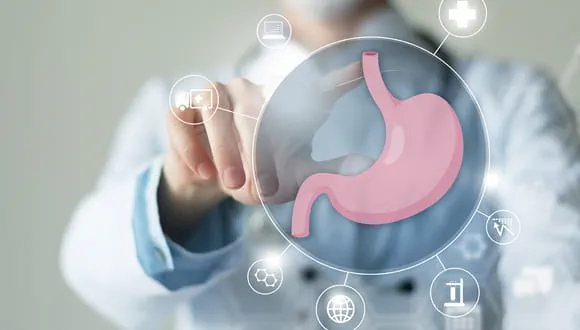Stomach Cancer: Causes, Symptoms, Diagnosis & Treatment

Stomach Cancer: Causes, Symptoms, Diagnosis & Treatment
Gastric cancer, another name for stomach cancer, is a serious medical disorder that affects millions of people globally. Effective management of this condition requires identifying its causes, identifying its symptoms, getting a diagnosis as soon as possible, and pursuing the right course of treatment. The goal of this article is to give readers a thorough understanding of stomach cancer, including information on possible causes and viable treatments.
Causes:
The exact cause of stomach cancer is often unclear, but several factors may increase the risk of developing this condition. These include:
- Helicobacter pylori infection: This bacterium is known to cause chronic inflammation in the stomach lining, which can increase the risk of developing stomach cancer over time.
- Diet: Consuming a diet high in salty, smoked, or pickled foods, as well as low in fruits and vegetables, may increase the risk of stomach cancer.
- Tobacco and alcohol use: Regular tobacco and excessive alcohol consumption have been linked to an increased risk of stomach cancer.
- Family history: Individuals with a family history of stomach cancer are at a higher risk of developing the disease themselves.
- Age and gender: Stomach cancer is more common in older adults and tends to affect men more frequently than women.

Symptoms:
Stomach cancer often does not cause noticeable symptoms in its early stages. However, as the disease progresses, individuals may experience the following:
- Persistent abdominal pain or discomfort
- Unexplained weight loss
- Loss of appetite
- Difficulty swallowing
- Nausea and vomiting
- Feeling full after eating small amounts of food
- Blood in the stool or vomiting blood
Diagnosis:
Diagnosing stomach cancer typically involves a combination of medical history review, physical examination, and diagnostic tests, including:
- Endoscopy: A procedure in which a flexible tube with a camera is inserted into the stomach to visualize any abnormalities.
- Biopsy: During an endoscopy, tissue samples may be taken for further examination under a microscope to confirm the presence of cancer cells.
- Imaging tests: Imaging techniques such as CT scans, MRI scans, and PET scans may be used to determine the extent of the cancer and whether it has spread to other parts of the body.
Treatment:
The treatment of stomach cancer depends on several factors, including the stage of the cancer, its location, and the overall health of the individual. Treatment options may include:
- Surgery: Surgical removal of the tumor and surrounding tissues is often recommended for localized stomach cancer.
- Chemotherapy: Chemotherapy drugs may be used to shrink the tumor before surgery (neoadjuvant chemotherapy) or to kill any remaining cancer cells after surgery (adjuvant chemotherapy).
- Radiation therapy: High-energy rays are used to target and destroy cancer cells.
- Targeted therapy: Drugs that target specific abnormalities within cancer cells may be used in certain cases.
- Immunotherapy: This treatment helps the immune system recognize and attack cancer cells.
Conclusion:
Being a dangerous illness, stomach cancer needs to be treated right away. Patients with stomach cancer can increase their chances of a good prognosis by being aware of the possible causes, identifying the symptoms, getting a quick diagnosis, and seeking the right treatment. Maintaining a healthy lifestyle and getting regular tests may also help lower the chance of getting this illness. See a medical expert for assessment and advice if you have worries about stomach cancer or notice any worrisome signs.



0 Comments